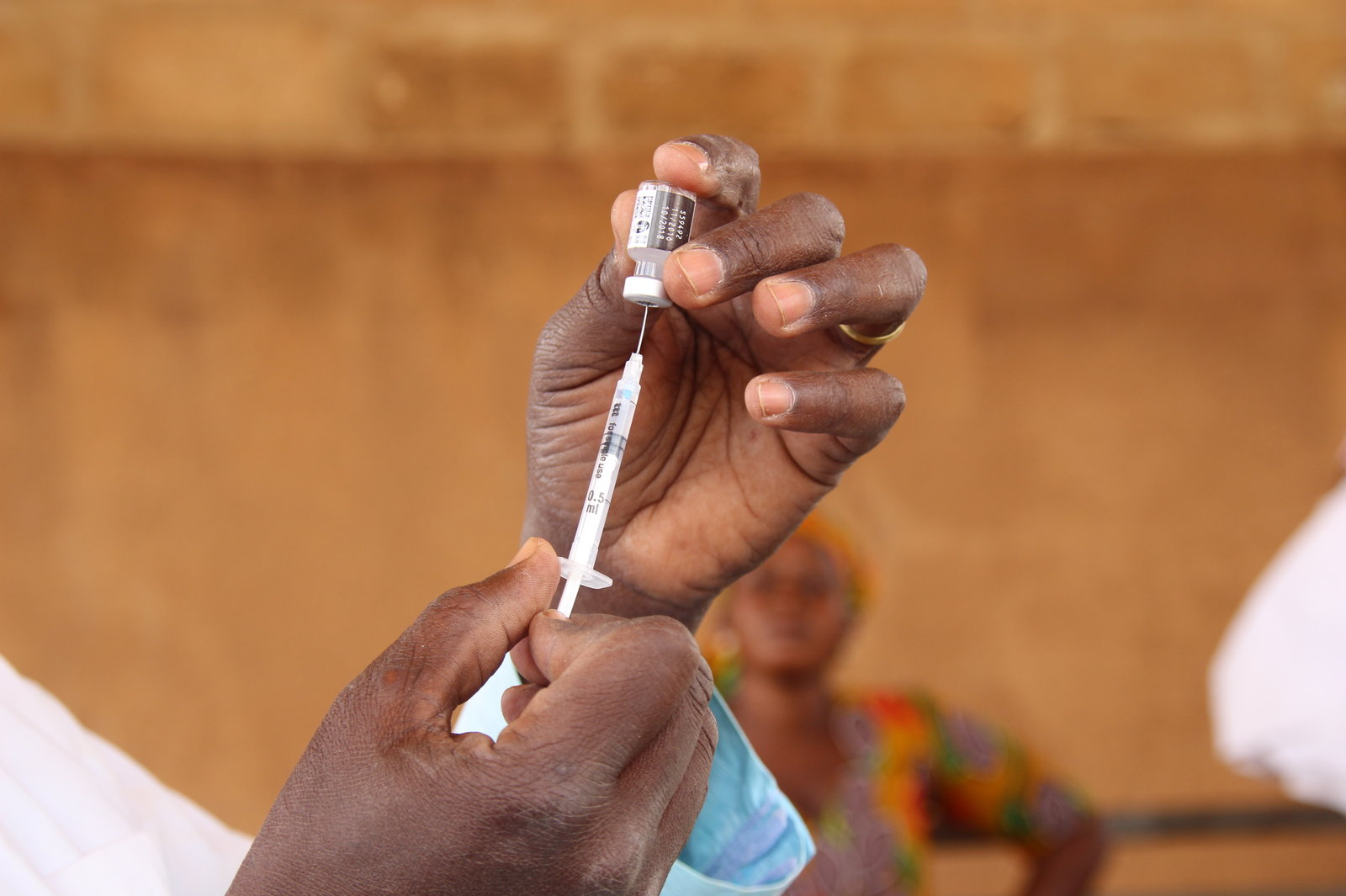为什么天文数字的药品价格不利于健康和利润
为什么天文数字的药品价格不利于健康和利润
The price of pharmaceuticals around the world can vary dramatically depending on who's paying for the drugs and where those patients happen to live.
世界各地的药品价格可能会有很大的不同,这取决于谁为药品买单,以及这些患者恰好住在哪里。
Take the pneumonia vaccine. Doctors Without Borders just struck a deal on it for refugee children in Greece. The aid group will pay $9 per immunization for a drug with a list price of $540. In local Greek pharmacies, the vaccine costs $168. France pays $189 for the inoculation while the far less wealthy nation of Lebanon pays $243 for it, according to the group. In India you can get it for roughly $60.
拿肺炎疫苗来说。无国界医生组织刚刚为希腊的难民儿童达成了一项协议。该援助组织将为一种标价为540美元的药物支付9美元的免疫费用。在希腊当地的药房,这种疫苗售价168美元。该组织称,法国为接种疫苗支付189美元,而富裕程度远不及法国的黎巴嫩为243美元。在印度,大约60美元就可以买到。

The global drug pricing system is "broken," says Fatima Suleman, a professor of pharmaceutical sciences at the University of KwaZulu-Natal in Durban, South Africa. "Affordability used to be an issue primarily for low- and middle-income countries, but it's now a global issue," she says.
南非德班夸祖鲁-纳塔尔大学的药学教授法蒂玛·苏尔曼说,全球药品定价体系已经“崩溃”。“负担能力过去主要是低收入和中等收入国家的问题,但现在这是一个全球性的问题,”她说。
This weekend, Suleman is participating in the Fair Pricing Forum, a conference sponsored by the World Health Organization. The event brings together pharmaceutical executives, government health officials, academics and advocacy groups to look at ways to make global drug prices more affordable — while also benefiting drug manufacturers.
本周末,苏尔曼将参加由世界卫生组织主办的公平定价论坛。这次活动将制药高管、政府卫生官员、学者和倡导团体聚集在一起,研究如何让全球药品价格更容易负担得起-同时也让制药商受益。
We called up Suleman, who specializes in pharmaceutical policy, to ask her how the global health community could help patients get access to medicines they need and allow drug companies to reach much larger markets. This interview has been edited for length and clarity.
我们打电话给专门研究制药政策的苏尔曼,询问她全球卫生界如何帮助患者获得他们需要的药物,并允许制药公司进入更大的市场。为了篇幅和清晰度,本次采访经过了编辑。
Why not just let the free market sort out the price?
为什么不让自由市场来决定价格呢?
Well, because we are looking at a free market that's failing. Otherwise, why would something like insulin — that's almost a century old — still be priced so high that people are going into poverty not just in the U.S. but in countries like Tanzania and elsewhere to get access to their medicines? If this market was working, something like insulin would now be at an affordable price. But it's not.
嗯,因为我们看到的是一个正在失败的自由市场。否则,为什么像胰岛素这样的东西--已经有近一个世纪的历史了--价格仍然如此之高,以至于人们不仅在美国,而且在坦桑尼亚等国家和其他地方为了获得药物而陷入贫困?如果这个市场正常运作,像胰岛素这样的东西现在应该是一个负担得起的价格。但事实并非如此。
There's something in the system of medicine pricing that's broken and it's something that we need to really look at and figure out how we can fix.
在药品定价体系中有一些东西已经被打破了,我们需要认真研究并找出解决的办法。
Part of what you are arguing is that changes in global pricing could potentially benefit pharmaceutical companies by giving them increased access to billions of new customers in low- and middle-income countries. Have you seen an example of this?
你所说的部分原因是,全球定价的变化可能会让制药公司更多地接触到中低收入国家的数十亿新客户,从而潜在地使它们受益。你见过这样的例子吗?
Absolutely. We saw this with hepatitis C, where at first, the treatment was priced so high in the U.S. and in Europe it was unaffordable in most of the world. [The hepatitis C treatment released by the biopharmaceutical company Gilead in 2014 cost more than $1.000 per pill, and a single course of treatment was approximately $80.000.]
绝对一点儿没错。我们在丙型肝炎中看到了这一点,一开始,这种疗法在美国和欧洲的价格非常高,在世界上大多数地区都是负担不起的。[生物制药公司吉利德在2014年发布的丙型肝炎治疗药物每片成本超过1000美元,一个疗程约为8万美元。]
Other manufacturers in certain regions of the world [were allowed] to produce the medicines and supply them to certain areas at a much lower price. [Gilead granted licenses to two companies to produce generic versions of the drug to sell only in low-income countries. These were markets where few customers could afford the original list price.] And we saw the price of the hepatitis C medicines fall dramatically.
世界上某些地区的其他制造商被允许生产这些药物,并以低得多的价格供应到某些地区。吉利德向两家公司发放了许可,允许它们生产只在低收入国家销售的仿制药。在这些市场上,很少有顾客能付得起原价。我们看到丙肝药物的价格大幅下降。
How do you address the fact that some medicines, no matter what you do, are going to be incredibly expensive to produce?
你如何应对这样一个事实:无论你做什么,有些药物的生产成本都将高得令人难以置信。
We want transparency from the industry. Tell us what your research and development costs are, whether it's an expensive way of production that you can't get away from or whether it's a failed production line or a failed [clinical trial].
我们希望行业透明。告诉我们你的研发成本是多少,这是一种你无法摆脱的昂贵的生产方式,或者是一条失败的生产线或一项失败的(临床试验)。
As long as everybody is aware about that, people will be much more inclined to say OK, I'm ready to pay a little bit extra for this medicine because I know that it will help fund something that's going to help me further down the line.
只要每个人都意识到这一点,人们就会更倾向于说,好吧,我准备为这种药多花点钱,因为我知道它将有助于资助一些东西,这些东西将有助于我今后的发展。
But at the moment there's all this murkiness. Part of the concern is the kickbacks, discounts, the perverse incentives in the system that are also unclear. So all we're saying is: Can we get transparency?
但目前所有这些都很模糊。人们担心的部分原因是回扣、折扣,以及系统中不明确的不当激励措施。所以我们说的是:我们能获得透明度吗?
Any final thoughts on the push for fair pricing globally for drugs?
对推动全球药品公平定价有什么最后的想法吗?
We need more dialogue [for example, at the current forum]. At the end of the day, we have patients saying, "I want access to these high-cost medicines. Why am I not getting it?" And I think people need to understand that changing systems is slow. [That] it doesn't happen overnight, but that there is a global attention on this issue and we are hearing their voices and we do want change.
我们需要更多的对话(例如,在目前的论坛上)。在一天结束的时候,我们有病人说,“我想要获得这些高成本的药物。为什么我得不到它?”我认为人们需要明白改变系统是缓慢的。这不是一朝一夕的事情,但是全世界都在关注这个问题,我们听到了他们的声音,我们确实希望改变。
And that's why these forums take place.
这就是为什么会有这些论坛。
- 频道推荐
- |
- 全站推荐
- 推荐下载
- 网站推荐


















